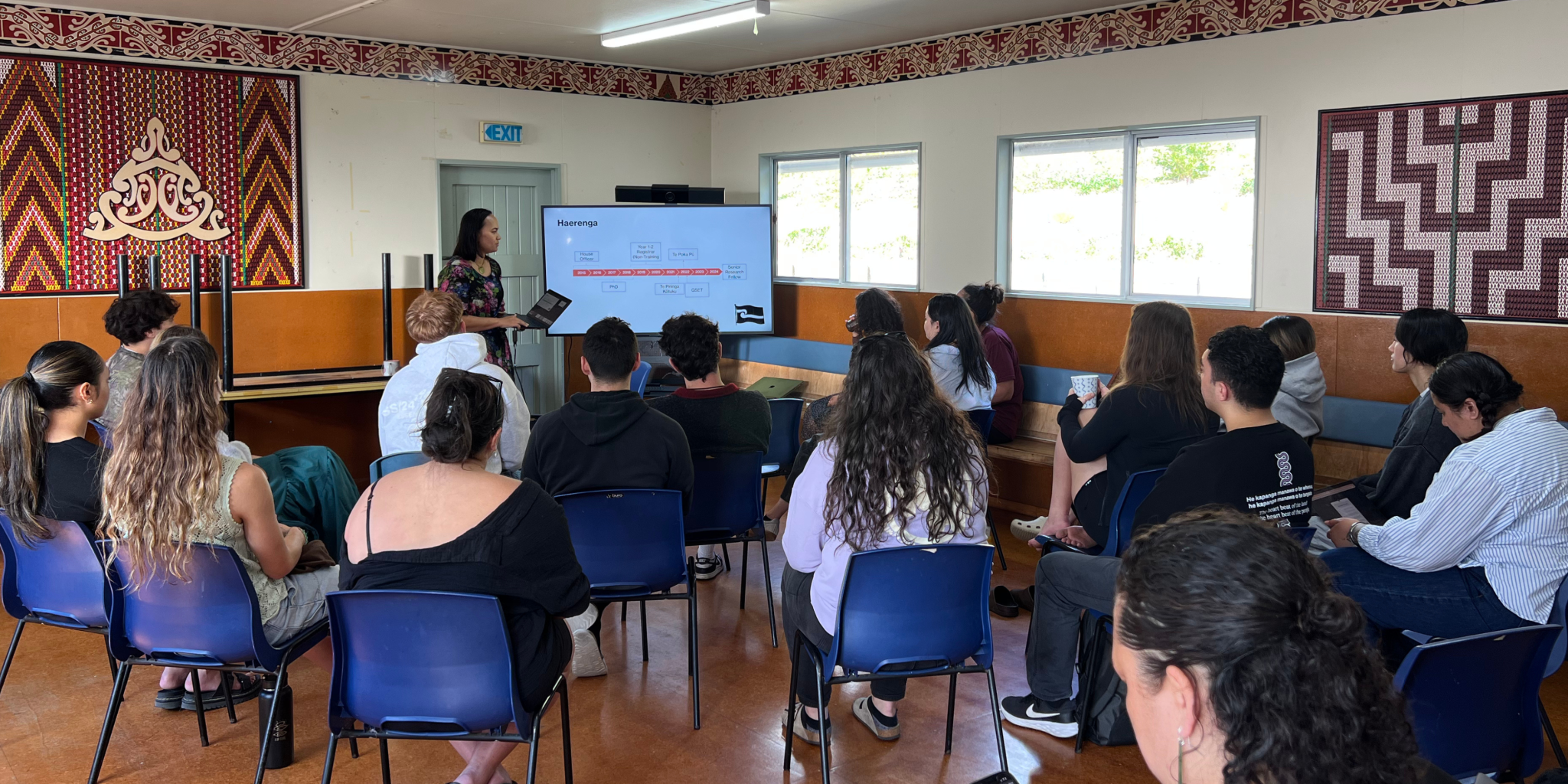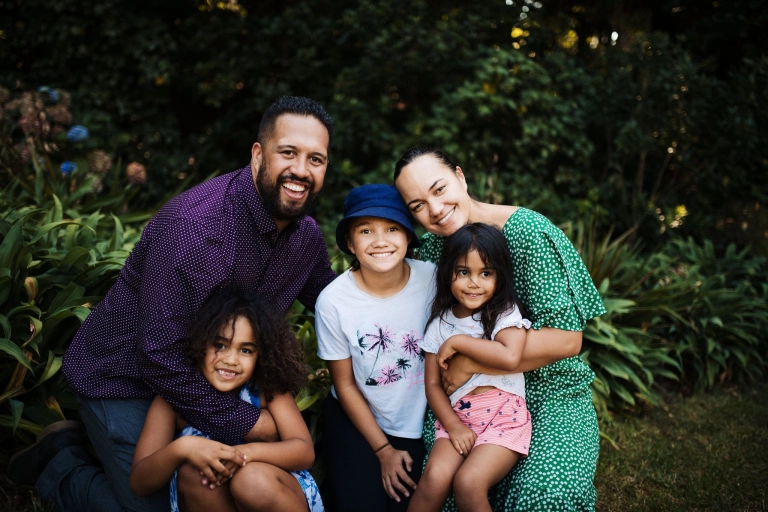Member Spotlight – Dr Jamie-Lee Rahiri
Dr Jamie-Lee Rahiri recently received a 2024 Early Career Research Excellence award for her work towards fairer policies and pathways to surgery for Māori communities. Dr Rahiri completed her PhD investigating equity in access to Bariatric Surgery for Māori, focusing on South Auckland.
Listen to Dr Rahiri talk about her research and work.
The Award recognises research excellence and leadership potential among early career researchers at the University of Auckland.
Dr Jamie-Lee Rahiri is of Ngāti Porou, Ngāti Whātua and Te Atihaunui-a-Pāpārangi descent and is currently residing in Te Tairāwhiti in her third year as a general surgery trainee. Her most recent accolade has spurred some reflection on the grind and serving her community within a colonial paradigm.
Dr Rahiri said receiving the award “was a moment for me to thank my mentors, notably Matire (Harwood) and those before that have had little bits of mentorship periods with me. It was good to stocktake and just be grateful, but also, it gave me a little bit of a kick that it’s nice to be acknowledged by a mainstream university.”
It was Dr Rahiri’s mentor, Professor Matire Harwood, who nominated her for the award. Professor Harwood said she nominated Dr Rahiri “First because she demonstrates excellence in her research – the research is guided and informed by mātauranga Māori, supports junior researchers in their development, and it makes the world a better place in the way it builds hauora knowledge and systems which deliver great health outcomes for communities and whanau.
Second, because she is an amazing leader – she is bright, passionate, smart and yet incredibly humble, loves to get stuck in and brings others along with her.
And finally, I think it is important that we shine the light on people, especially those who tend to be overlooked when they are doing amazing things for and in Aotearoa."
Reflecting on what the award means to her community, Jamie-Lee said
“It's only recent that it's been publicised through social media, but my experience is that people were just proud of you”
Coming up through surgical circles as a wāhine Māori, Rahiri has spoken along the way about some very stark experiences of discrimination. Reflecting on her own experiences, she says,
“I think what I've learned in my maturity is that no matter how difficult that was [for me], and it might be controversial, it's no way near as hard as what our people go through when they're trying to get help.”
27.4% of surgeons in Aotearoa NZ are women, and only 3.3% of all surgeons are Māori according to the Medical Council of New Zealand (2023), up from around 2% in 2021. On the other hand, Māori make up 19.6 per cent of the population (Stats NZ 2023). Dr Rahiri, as a Wāhine Māori trainee surgeon, is part of an even smaller percentage of surgeons. Her determination and focus on her goal to better surgical health outcomes for Māori has been recognised with multiple awards during her career so far.
In 2021 she received a $30,000 grant from the Health Research Council to establish Te Piringa Kōtuku, an independent Kaupapa Māori surgery and primary healthcare research and consultancy. The institute exists to encourage rangatahi (Māori youth) to study surgery and brings them together with mentors for support throughout their studies.
In 2022 she received the Royal Australasian College of Surgeons (RACS) Surgical Education and Training (SET) Trainee One Year Scholarship. During 2022, Rahiri was part of a group of wāhine surgical doctors who set up a Surgical Sisterhood to support their aspirations of applying for advanced surgical training. The sisterhood became a life vehicle in their pursuit of applying for advanced surgical training whilst navigating multiple sites of discrimination. The need for a surgical sisterhood to exist serves as a reminder to the surgical profession that aspiring wāhine Māori and Pasifika surgeons are expected to navigate an additional curriculum that involves enduring culturally unsafe workplaces, racism and sexism2.
With all that Dr Rahiri is achieving and the stats we have about the medical profession and burnout, we asked her about her experiences:
“The first thing that keeps me steered in the right direction is that whānau always comes first. Which is really antagonistic to the space of surgery; you really need to give your all.”
Burnout is common among practising doctors, with rates ranging from 25% to 60%3. Research from Massey University found that from a total sample of 652 employees across a range of occupations and industries from late 2022 to early 2023, which included 150 medical doctors, the burnout risk is 22.7 per cent for medical doctors, compared to 12.2 per cent for the rest of the workforce4. Burnout isn’t limited to senior doctors: In a prospective cohort study of 110 medical students from the University of Sydney, rates of burnout increased from 28% in the final year of medical school to 61% 18 months later in the trainee intern year5.
Dr Rahiri said she has seen mentors of hers give their lives to surgery and lose their families or become burnt out or unhappy. Dr Rahiri attributes this to the pervading value-set in surgery. “I would happily trade in surgery any day if my family weren’t happy”. Dr Rahiri acknowledges her husband for his role in supporting her and their 3 daughters and knows that she wouldn’t be here doing the things she loves to do if it weren’t for him.
Dr Rahiri shares advice for those coming through the surgical pathway: “Put your family first. Put the things that are important to you first. If surgery is important to you, acknowledge that, but recognise that surgery won’t keep you. Remember that you are part of a service system. It may seem like it’s your life, but it isn’t.”
Dr Rahiri exemplifies the Pūtahi Manawa value Toitoi Manawa, to encourage and inspire behaviours that align and reinforce our vision and mission for heart health equity through a business-not-as-usual approach. A strong whānau-first value keeps Dr Rahiri going and grounded. Allowing her to avoid some of the downsides of a surgical and research career while confronting additional challenges that are unique to wāhine Māori in this space.
Dr Rahiri encourages and inspires a new generation of heart health researchers by supervising Māori students through the Půtahi Manawa Māori summer research programme, Kura Raumati.
“When it comes to supervising Māori students, there’s a different approach that’s required, regardless of whether they’re connected or not connected [to Te Ao Māori].”
“For me, it’s showing them that you can be on your journey, discovering your Māoritanga, and also do good mahi for your people.”
“We all have a bit of imposter syndrome… with Te Ao Māori and even the meritocracy in the Pakeha system. So we have to find ways to let that go in the service of our people.”
Dr Rahiri says there are many ways to encourage and inspire students through supervision, and this is an important message she strives to impart to her students.
This summer, Dr Rahiri is supervising four students through Pūtahi Manawa’s Māori Summer research programme and joined our 2024/25 cohort of students in Tokomaru Bay as they came together to whakawhanaungatanga (connect), wānanga (prepare), and tautoko (support) each other for their upcoming research projects.

Dr Rahiri presenting at Waiparapara Marae, November 2024 to Kura Raumati students.
References
1. https://www.mcnz.org.nz/assets/Publications/Workforce-Survey/Workforce-Survey-Report-2023.pdf
2. Tutone, S., Fuimaono-Asafo, A., Wilson, A., Harwood, M., Love, R., & Rahiri, L. (2022). The Surgical Sisterhood – The Experiences of wāhine Māori and Pasifika Aspiring Surgeons. Qualitative Health Research. https://doi.org/10.1177_10497323221144929
3. Shanafelt TD, Bradley KA, Wipf JE, Back AL. Burnout and self-reported patients care in an internal medicine residency program. Ann Intern Med. 2002;136:358–67
5. Willcock SM, Daly MG, Tennant CC, Allard B. Burnout and psychiatric morbidity in new medical graduates. MJA. 2004;181:357–360.



